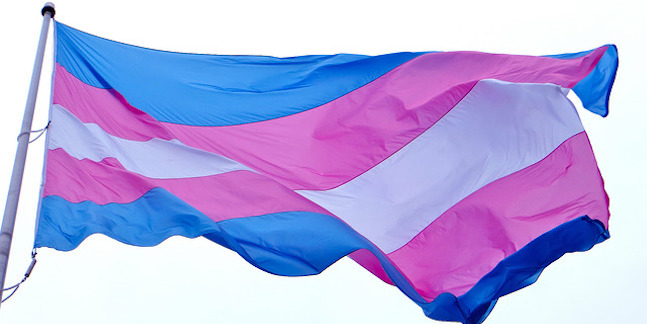
Navy, Marine Leaders: No Problem with Transgender Troops
Associated Press
WASHINGTON — The top military leaders of the Navy and Marine Corps said Thursday, April 19 they have seen no discipline, morale or unit readiness problems with transgender troops now serving openly in the military.
Gen. Robert Neller, commandant of the Marine Corps, told the Senate Armed Services Committee that some of his commanders have said there are no problems at all. Others, he said, say they’re spending “a lot of time” with transgender individuals as they work through medical requirements involving the transition from birth gender to preferred gender.
He said there are currently 27 in his force who have identified themselves as transgender. Dealing with the medical requirements, he said, can be a burden on commanders. Those issues don’t include any unit cohesion or discipline problems, he said.
The Pentagon in 2016 lifted the ban on transgender troops serving openly in the military. President Donald Trump has pushed for a ban, but that directive is being challenged in numerous court cases. While the court actions proceed, the Pentagon continues to allow transgender troops to serve and is allowing them to enlist.
Neller said he met with four transgender troops and learned about their desire to serve. “Those that came forward, we have to honor the fact that they came out and they trusted us to say that, and we need to make sure that we help them get through that process,” said Neller.
Adm. John Richardson, chief of naval operations, says he’s not aware of any problems with transgender service members in the Navy. He said the Navy is dealing with transgender individuals in much the same way as it handled the integration of women sailors on submarines.
“One of the pillars of that was to make sure that there were really no differences highlighted in our approach to training those sailors,” said Richardson. “That program has gone very well. So, maintaining that level playing field of a standards-based approach seems to be the key to success.”
On April 13, a U.S. judge in Seattle ordered President Donald Trump not to ban transgender troops from serving in the military, saying it’s unclear whether recent changes to his administration’s policy are constitutional.
U.S. District Judge Marsha Pechman was one of four judges nationwide who blocked Trump late last year from overturning an Obama-era directive allowing transgender troops to serve openly. The Justice Department asked her to dissolve that ruling, citing changes that would allow transgender troops to serve in limited cases.
Because the changes were announced just last month, the sides had not had time to argue whether the policy is discriminatory or whether the military is entitled to set its own policy, given its expertise in what’s needed for national defense, Pechman said in an order. She told the parties to prepare for trial.
“Because transgender people have long been subjected to systemic oppression and forced to live in silence, they are a protected class,” Pechman wrote. “Therefore, any attempt to exclude them from military service will be looked at with the highest level of care.”
She also said the government must show that the ban “was sincerely motivated by compelling interests, rather than by prejudice or stereotype, and that it is narrowly tailored to achieve those interests.”
The Pentagon lifted its longstanding ban on transgender troops in 2016. Trump took defense leaders by surprise last July, when he tweeted that the U.S. government would not allow transgender members to serve.
It triggered a number of lawsuits, and federal judges in Seattle; Baltimore; Washington, D.C.; and Riverside, California, blocked Trump from rescinding former President Barack Obama’s policy. The Pentagon began allowing transgender people to serve and enlist on Jan. 1.
Defense Secretary Jim Mattis also launched a review on the issue, forwarding recommendations to Trump in February. Trump issued a memo March 23 giving the Pentagon the go-ahead to implement a policy that would block transgender people from serving in many cases.
Transgender people who have been diagnosed with gender dysphoria or have a history of the condition would be banned, with some exceptions. Those who can show they have been stable for 36 months would be allowed to serve if they adhere to the standards for their “biological sex.”
Anyone who has transitioned to their preferred gender or who needs medical treatment to do so would be presumed ineligible for service, though they could seek individual waivers allowing them to serve.
Under Pechman’s ruling, that policy can’t take effect. She said the changes didn’t truly amount to a new policy but “instead threaten the very same violations” that led her and other judges to block the ban.
Her ruling came in a challenge brought by several transgender troops or prospective troops, as well as civil rights organizations including Lambda Legal. The state of Washington is also a plaintiff.
“The court’s ruling means President Trump’s hastily conceived and discriminatory ban now has to stand up to the court’s most rigorous standard of review,” Attorney General Bob Ferguson said in a statement Sunday night. “I am confident the ban will not withstand that.”











Comments